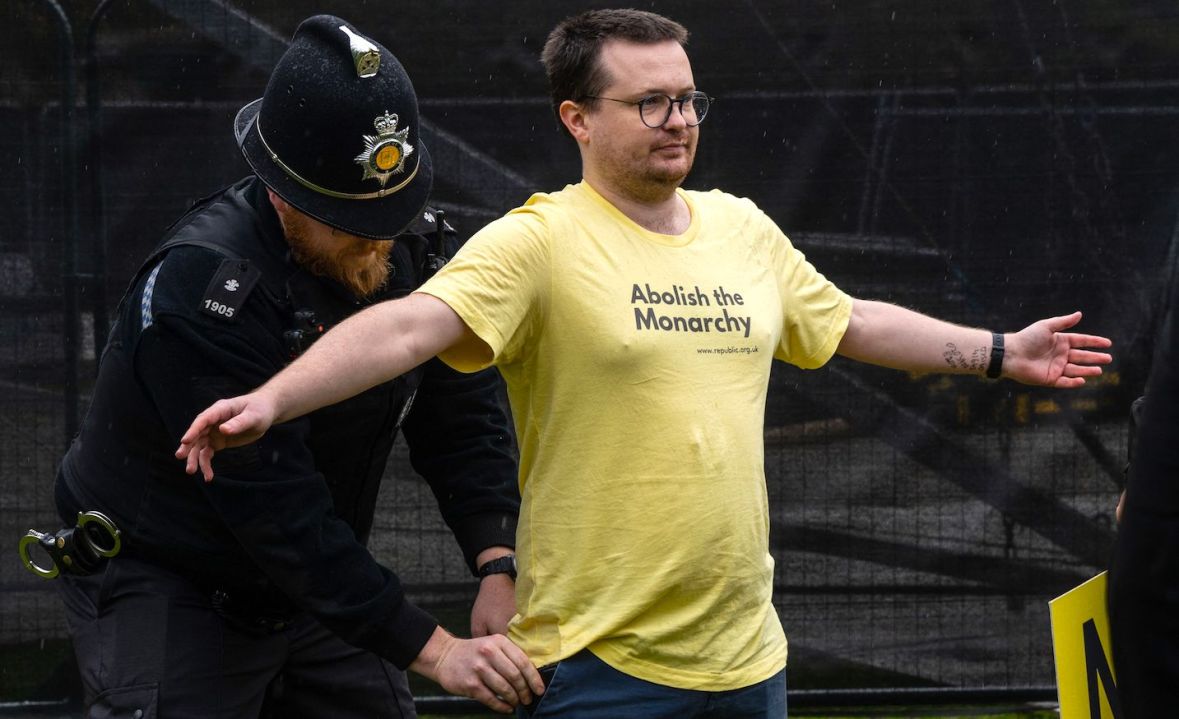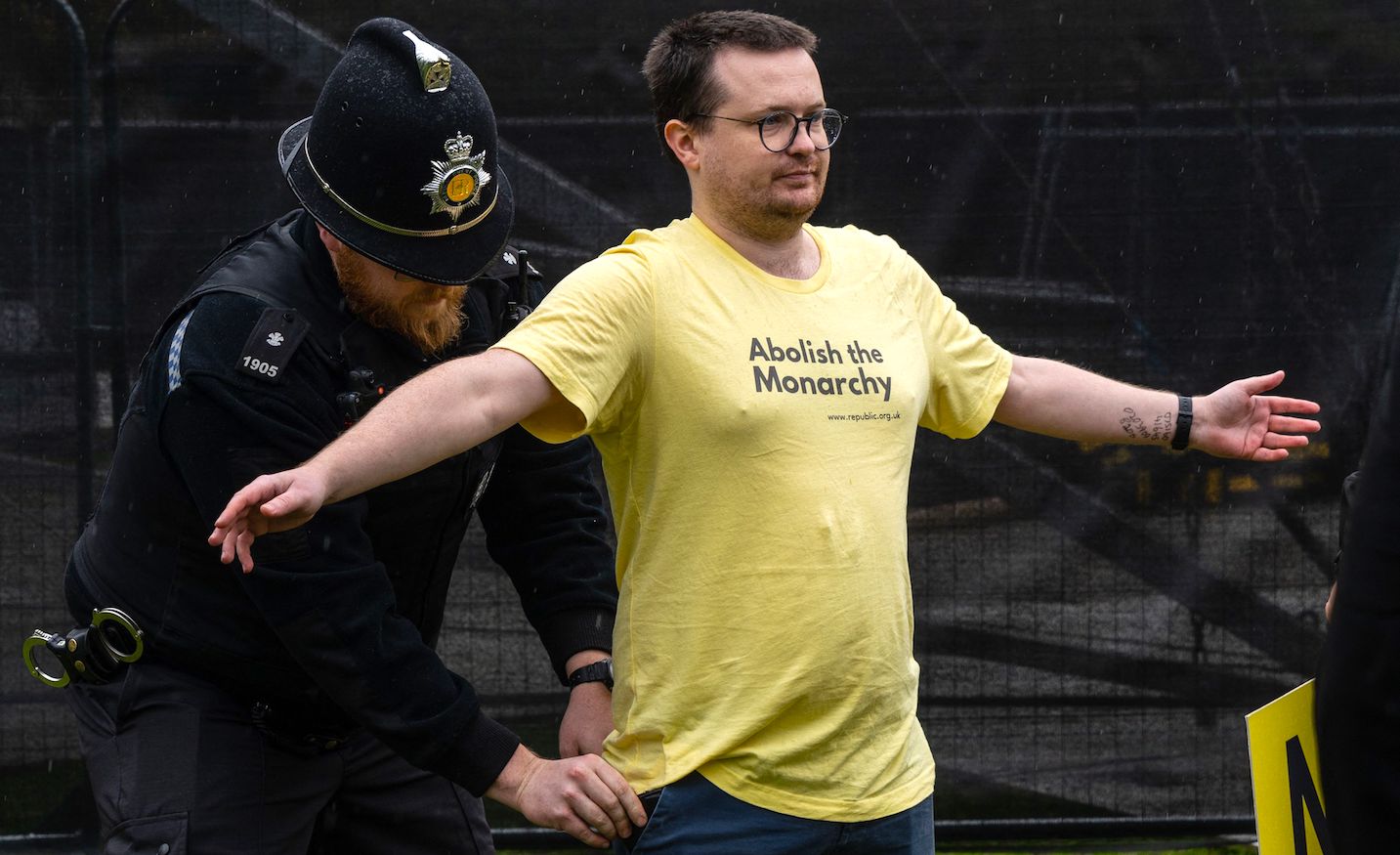What century is this? I ask because today, in London, peaceful protesters have been handcuffed and arrested for daring to express disapproval of King Charles. For daring to believe Britain should be a republic, not a constitutional monarchy. This is a grotesque assault on freedom. It is borderline medieval. No one’s feelings, not even the King’s, should ever trump the people’s right to freely express their beliefs in public.
‘Give me the liberty to know, to utter, and to argue freely according to conscience, above all liberties’
The footage coming out of Trafalgar Square shames Britain. We’ve seen protesters in ‘Not My King’ t-shirts being arrested. Cops apparently seized hundreds of placards. Graham Smith, the head of the campaign group Republic, has reportedly been arrested too. ‘Is this democracy?’, Republic has asked. No, it is not. A serious democracy does not put people in police vans for saying things it disapproves of.
Some argue that the coronation is not the right place to make a political statement. I disagree. The coronation itself is a political statement. It is a loud, noisy, pomp-filled declaration that Britain remains a monarchy and that Charles, by divine right, is our King. This is the perfect event for republican dissent, for the peaceful expression of an alternative view. Namely, that Charles should not be King; that no one should be.
I agreed with those who said it would have been unseemly, if not outright immoral, for republicans to protest during the Queen’s funeral. Though my commitment to freedom of speech and the right to protest means I would have opposed even the punishment of any idiot who gatecrashed such a solemn occasion with political grandstanding. Republic itself carried out no actions in that period of mourning, on the basis that it would have been ‘inappropriate’. Quite right.
But the coronation is a different beast entirely. The state is spending millions of pounds enthroning its new head, declaring before the world that this man, Charles, is the British sovereign. Citizens must have every right in such circumstances to say, ‘No, we disagree’. As publicly as they please.
Yes, disrupting the coronation, by blocking roads, for example, would have been irritating, as likely to cause annoyance to ordinary people who admire the monarchy as to the monarchy itself. But gathering in a public square to express republican sentiments ought to be entirely acceptable. That it seemingly isn’t – that cops have cleared away these unwashed plebs for the crime of dissing the King – is chilling. It should outrage everyone who believes in freedom.
This obscene interference in the freedom of republican dissent is a taste of things to come under the government’s Police, Crime, Sentencing and Courts Act, which severely curtails the right to protest. This country has a great, proud tradition of fighting for the right to petition, to speak, to protest, to state one’s grievances against authority. That these rights are now being treated so cavalierly by officialdom, to the extent of anti-monarchy protesters being bundled into cop cars, is disgraceful. We need a great pushback against the government’s anti-protest laws.
I’m not protesting today, but I am a republican. I sincerely hope Charles and Camilla enjoy their day, but I wish this day wasn’t happening. Even if I were a monarchist, though, I hope I would be horrified by the sight of police preventing people from giving voice to their moral convictions. We forget the importance of freedom of speech – to democracy, to the good life, to civilisation itself – at our peril.
Let us give the final word to one of Britain’s greatest republicans, John Milton: ‘Give me the liberty to know, to utter, and to argue freely according to conscience, above all liberties.’
Watch an interview with Graham Smith on Spectator TV:








Comments